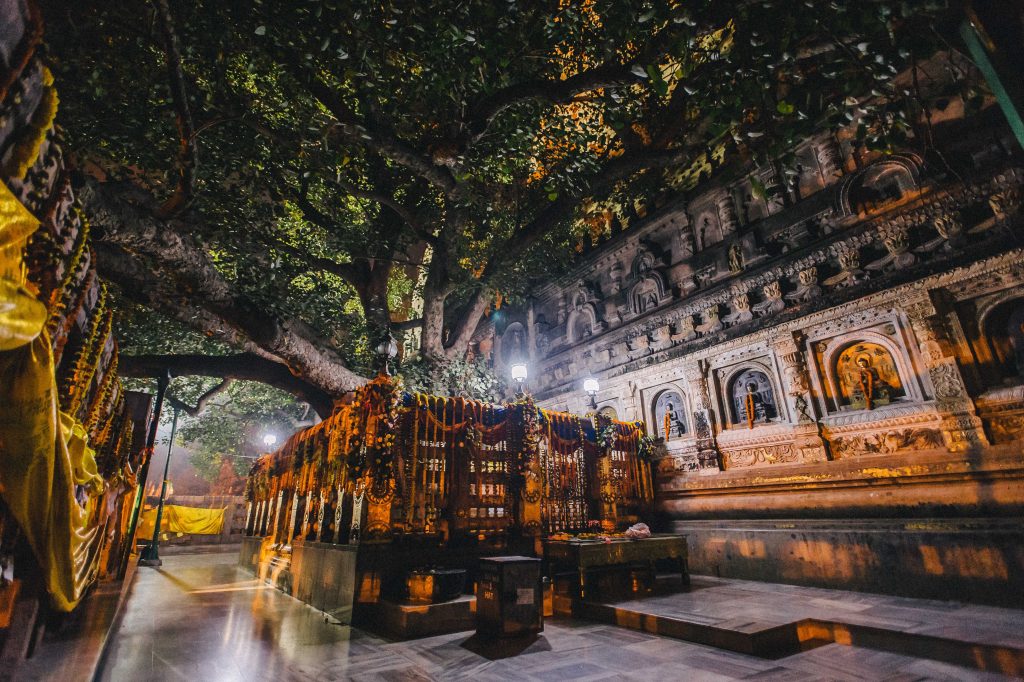Realising that neither the emaciation of the body nor dwelling in luxuries bore fruit to liberation, the Buddha-to-be consumed some food offered to Him, and found a suitable place to meditate under a large pipal tree at Uruvela (now known as Bodhgaya). Under the bright light of the Vesakhā month full-moon, He resolved that He would not leave the seat until He had attained the highest wisdom and unshakable peace.
In the first watch of the night, He developed the First Jhāna, and continued up to the fourth Jhāna. Then, with perfect one-pointedness of mind, He directed it to the knowledge of past births (Pubbe-nivāsānussati Ñāna). He clearly recollected His past lives over aeons, and saw that as He departed from one existence, he came into another. This was the first “special knowledge” He realised.
In the second watch, He directed His purified mind to “the disappearing and reappearing of beings” (Catūpapāta Ñāna). He perceived the appearing and disappearing of other beings from one state of existence to another. He saw them passing according to their deeds; all beings are heirs to their kamma (volitional actions), are born of their kamma, and live supported by their kamma. The second “special knowledge” arose in Him.

The Bodhi tree (Pāli: asatha rukkha) in Uruvela, present-day Bodhgaya, under which the Buddha attained Enlightenment.
At the third watch of the night, He directed His purified mind to “comprehension of the cessation of corruptions” (Āsavakkhaya Ñāna). He realised that there is Suffering, the cause and cessation of Suffering, and the path leading to its cessation. He also saw with clarity, the existence of the Corruptions, their arising and their total extinction from His mind. He has attained true freedom from defilements. The third “special knowledge” was attained.
Now a ‘Fully-Awakened One’, He declared “Delivered am I; the rounds of rebirth is ended; fulfilled is the Holy Life; done is what needed to be done. There is no more of this state again.” That was His final attainment of Nibbāna.
 Holistic Education for Integral Human Development
Holistic Education for Integral Human Development